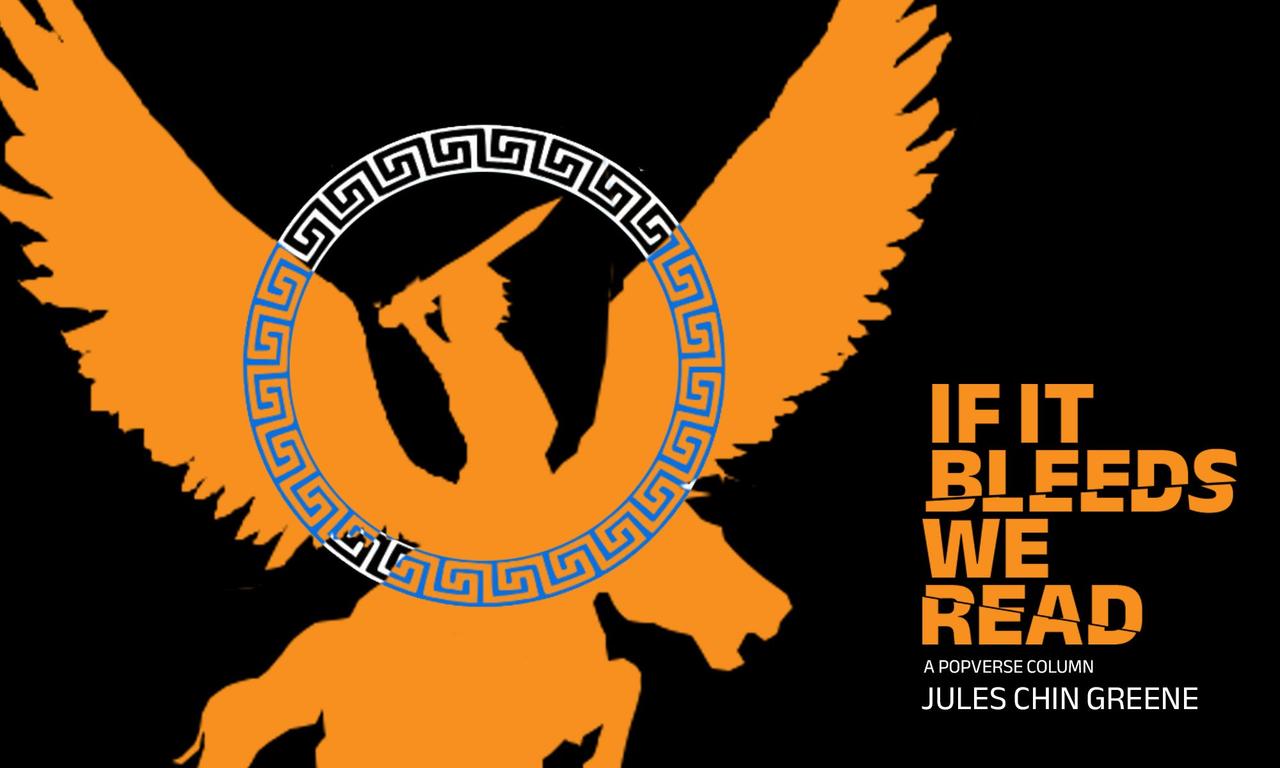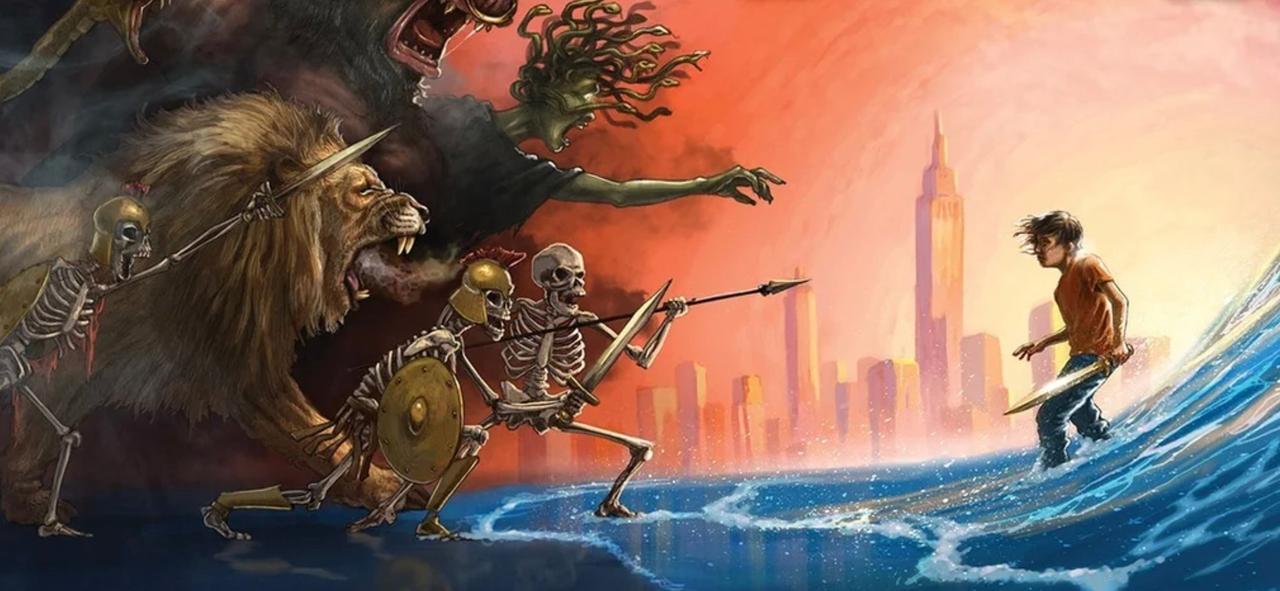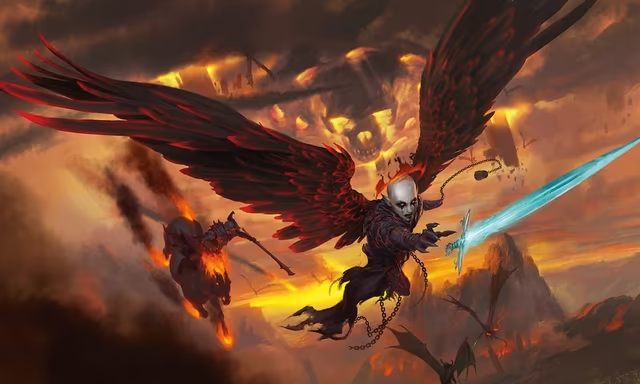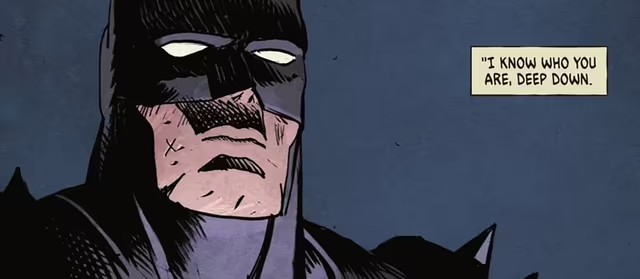If you click on a link and make a purchase we may receive a small commission. Read our editorial policy.
Re-reading the Percy Jackson books as an adult, my adolescence as a disabled and mixed-race kid finally makes sense now [If It Bleeds, We Read]
Rick Riordan's Percy Jackson books gave me a world where I could finally feel normal as a disabled and mixed-race kid

Popverse's top stories
- Where to find Popverse at Seattle's Emerald City Comic Con 2026
- The Traitors US alum Bob the Drag Queen drops a piece of advice for future players: "You are not as good at this game as you think you are"
- Bridgerton season 4 ending explained - did Benedict and Sophie make it work, and who's leaving the show for good?
Part of becoming an adult, for me at least, involves sorting through the objects from your youth. Since my parents moved out of my childhood home, I've had to sort through my old possessions and decide what to keep, what to donate, and what to toss. For me, I've looked at it as an opportunity to activate the type of thinking and analysis I learned from my college archaeology class. What can we learn from the objects that people keep around them? What does that say about them and who they were?
While cleaning out my childhood bedroom, I came across my copy of The Lightning Thief, the first book in the original Percy Jackson and the Olympians series by Rick Riordan. I read that book several times in middle school, I couldn't remember how many times exactly, but I remembered that it launched my interest in Ancient Greece. I was sure it was a good enough book, because why else would I have re-read it so many times, but the other part of becoming an adult is losing track of why you were invested in the stuff that you were obsessed with in your youth. I recalled faintly that part of my fondness for The Lightning Thief revolved around how it was the first time that I had read a book where any character, much like the protagonist, had ADHD like me.
For old time's sake, and to honor my archaeology professor, I opened up the book and read the first page. I let out a noise somewhere between a laugh and a shriek when I read the first sentence: “Look, I didn’t want to be a half-blood.” Goddamn (godsdamn?). I had used this book series to channel all of my mixed person angst when I was a kid!
Rick Riordan's Percy Jackson series gave me a vocabulary for understanding my experience as a disabled and mixed-race kid

Mixed Person Angst is a very specific type of angst. It's embodied in things like Beethoven's Fifth Symphony (whether or not he was actually part African doesn't change the fact that that dude perfectly captured the magnitude of Mixed Person Angst in the opening notes of his composition, okay), Spock from Star Trek, and various anime characters like Inuyasha, Vampire Hunter D, Kaneke from Tokyo Ghoul, and Naruto probably. And as much as I joke about my adolescent angst now, in the moment, it's incredibly agonizing and isolating to feel at once connected but also disconnected from your cultural heritage.
Percy Jackson soothed my Mixed Person Angst, because the central character faced some of the same problems that I did, and he got to wield a pen that turned into a sword with a click of a button. He got to prove the naysayers wrong at every turn of the story. With this series, Rick Riordan created the perfect sandbox for adolescent me to work out all my issues in within the privacy of my own mind.
At the center of Riordan's Percy Jackson series was the experience of being a "half-blood," or a demi-god kid born to a mortal parent and a member of the Greek pantheon. As Percy is quick to tell you in the books, being a demi-god is stressful. Before you're even old enough to drive, monsters from Greek mythology are on the hunt for you. On the first page of The Lightning Thief, Percy says "Being a half-blood is dangerous. It's scary. Most of the time, it gets you killed in painful, nasty ways." For a kid who was called things like "mutt" and "half breed" at school, the hostility that Percy faced for being a half-blood was one that I was deeply familiar with.
The Percy Jackson books paved the way for my self-acceptance as an adult

The next few months, adult me reread the original Percy Jackson series. And I was delighted not only by how funny Riordan's writing is, but also by how forward-thinking the story is. When I was reading these books at the tail end of the W. Bush administration, "representation," "cultural diversity," and "disability" weren't a part of the contemporary discourse in pop culture. There were no calls for authors to consider diversity or their own positionality in their stories. And yet here Riordan was, writing a killer middle-grade series where demi-god children of ancient Greek gods and goddesses came from a variety of different racial and ethnic backgrounds, and had disabilities like dyslexia and ADHD. I hate to even bring her up, but it's worth noting that Riordan was quietly changing the game for middle-grade fiction at the same time that J.K. Rowling was going around creating Black characters named "KINGSLEY SHACKLEBOLT" and basing the entirety of the only Irish kid at Hogwarts around his habit of blowing stuff up. My god - sorry, my gods.
As rough as my middle school experience was, I feel grateful that I at least had Riordan's novels to get lost in. Camp Half-Blood, a sanctuary on Long Island where half-blood kids live and train in the books, was my utopia. There, half-bloods could be themselves and find community with each other and their siblings. Instead of worrying about passing as "normal" in the outside world, they could develop their skills in areas that interested them. In other words, they were free. By the time I came across the Percy Jackson series, I was already adept at canoeing, archery, and wilderness survival from my years at summer camp. I was prepared to get over my disdain for Long Island if it meant getting to be with others like me, hypothetically speaking.
Eventually, I grew up and became comfortable with my own racial hybridity. I came to the realization that if H.P. Lovecraft met me, he would probably have a heart attack. And that brought me joy. I found my own Camp Half-Blood (minus the swords and arrows, regrettably) within the friendships I made in college, where I was involved in planning events that supported the BIPOC community on campus. I came to terms with the fact that I would probably stand out wherever I went, just for being who I was, and I became okay with that. I simply couldn't imagine having it any other way.
As you might imagine, re-reading books that I clung to during such a turbulent period in my life opened my eyes to how much I've changed since I was an adolescent. And it's a change that I'm proud of. To be serious for a moment, I'm not sure where else I would have come across a story that showed my younger self the wonders and benefits of community outside of Rick Riordan's Percy Jackson books. It probably would have been Grant Morrison and Frank Quitely's New X-Men series, which I would discover the joys of in high school. One thing is for certain though: J.K. Rowling would have given me the worst name ever if I was a student at Hogwarts, and probably written me into a sub-plot where I was actually two different people stuck together in one body, or some other cursed shite.
After I reread the original Percy Jackson and the Olympians series, I started reading Riordan's other works, like the Magnus Chase books with Norse mythology, and the Heroes of Olympus sequel series. They're all a delight, and Riordan still doesn't miss. While I thought that I had outgrown the world of Rick Riordan's novels, there's just so much joy that I get out of reading these stories, knowing that there's a place for everyone in them. Long live Camp Half-Blood, and long live Percy Jackson.
Just like yourself, the Popverse staff spends a whole lot of time with our respective noses in respective books. It's why we've come up with stuff like:
- The hottest upcoming fiction
- Queer romance to add to your reading list
- A genre fiction literary column called If It Bleeds, We Read
...and a whole lot more. Join our metaphorical library, won't you? There are no late fees and you can be as loud as you want, so long as the people you live with are OK with it.
Follow Popverse for upcoming event coverage and news
Find out how we conduct our review by reading our review policy
Let Popverse be your tour guide through the wilderness of pop culture
Sign in and let us help you find your new favorite thing.
















Comments
Want to join the discussion? Please activate your account first.
Visit Reedpop ID if you need to resend the confirmation email.